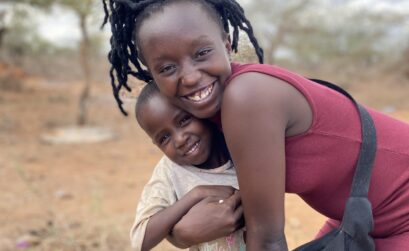Kenya 2022: An up and down of emotionsFeatured
Our trip to Kenya this year took place in November 2022. It was a very intensive and touching stay.
Due to the prolonged drought, the situation on the ground is dramatic, in all three schools. Especially Immpirrishi worries us a lot, as we are the only organization there that at least comes by from time to time and takes care of the students.
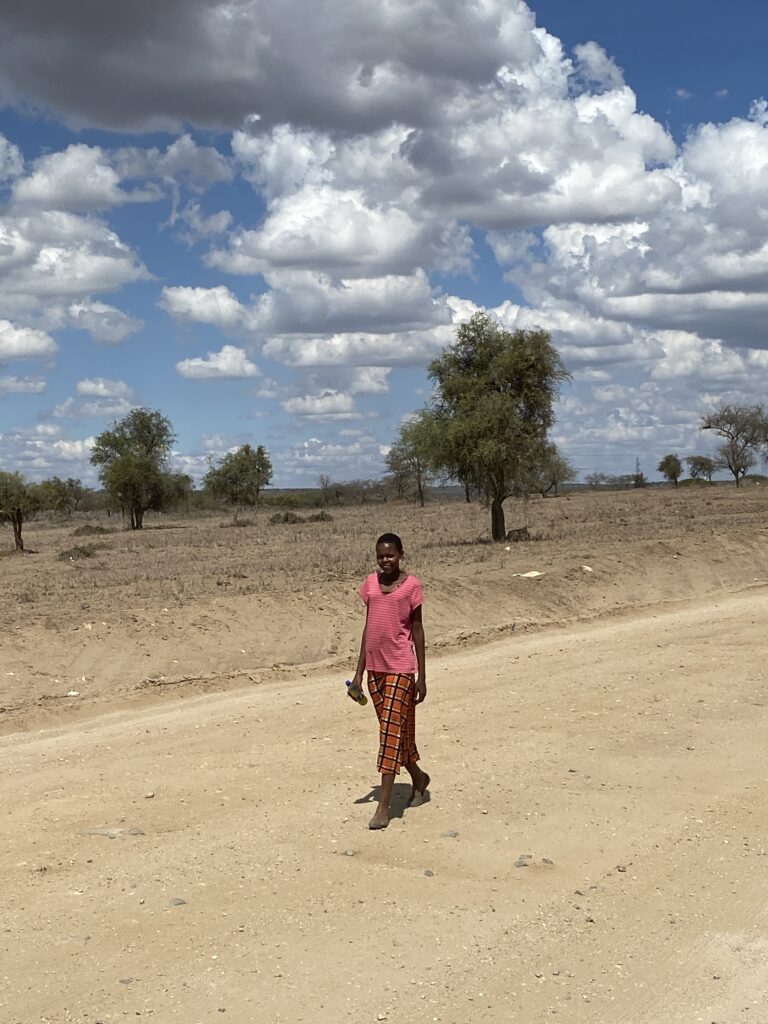
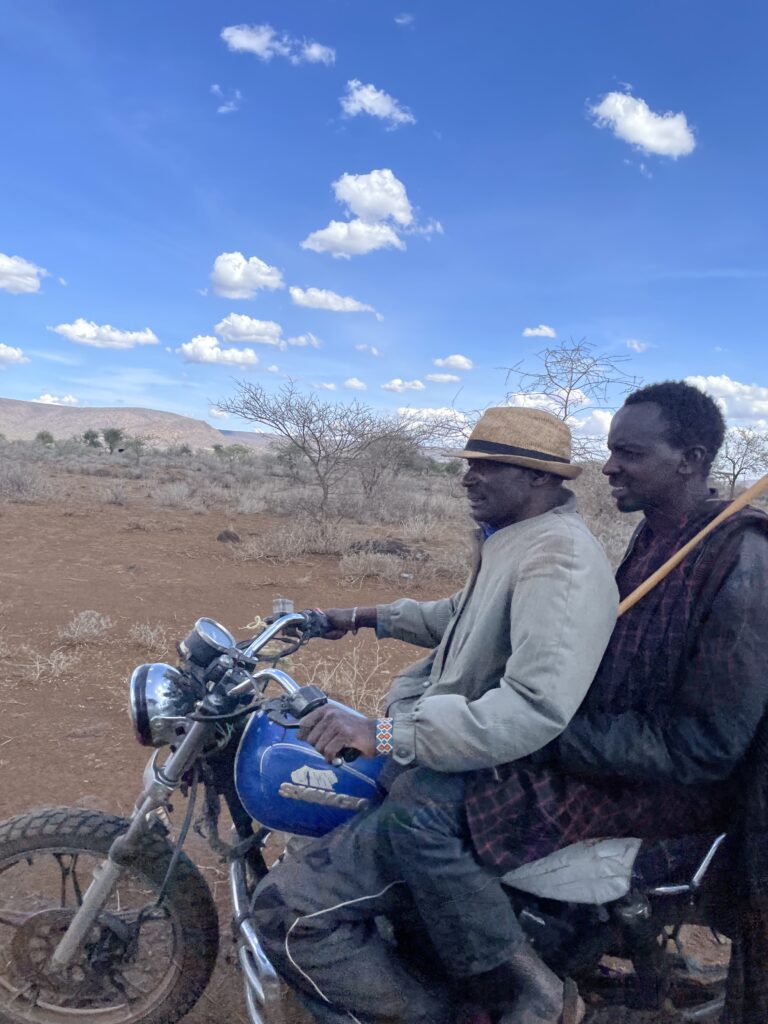
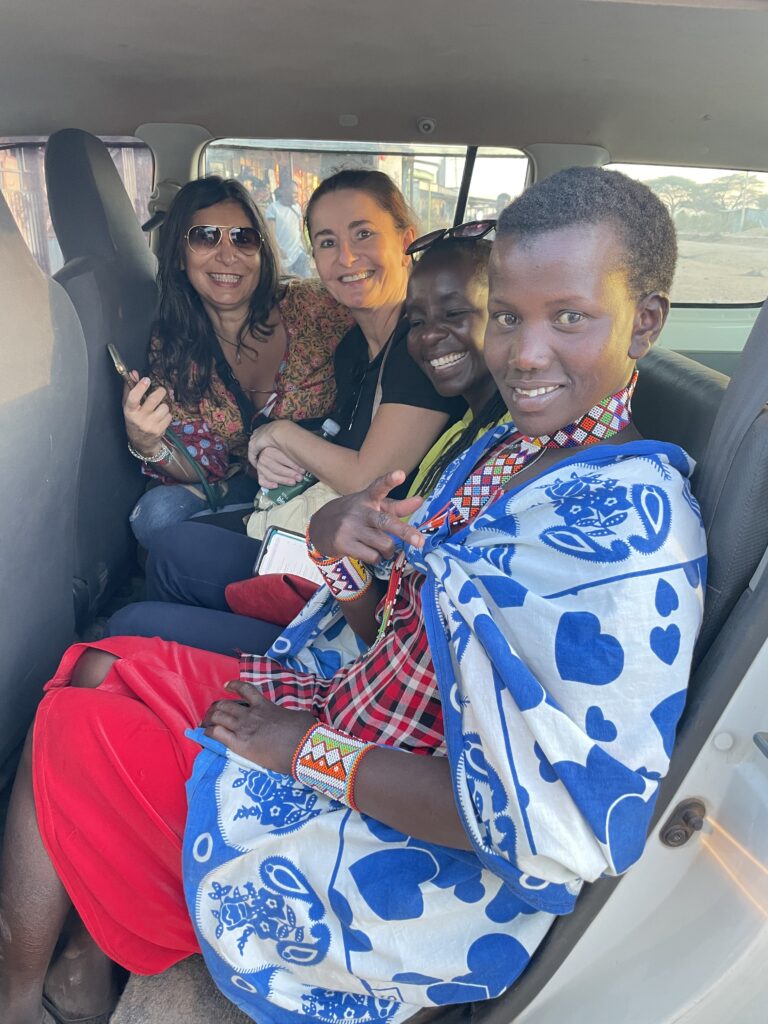
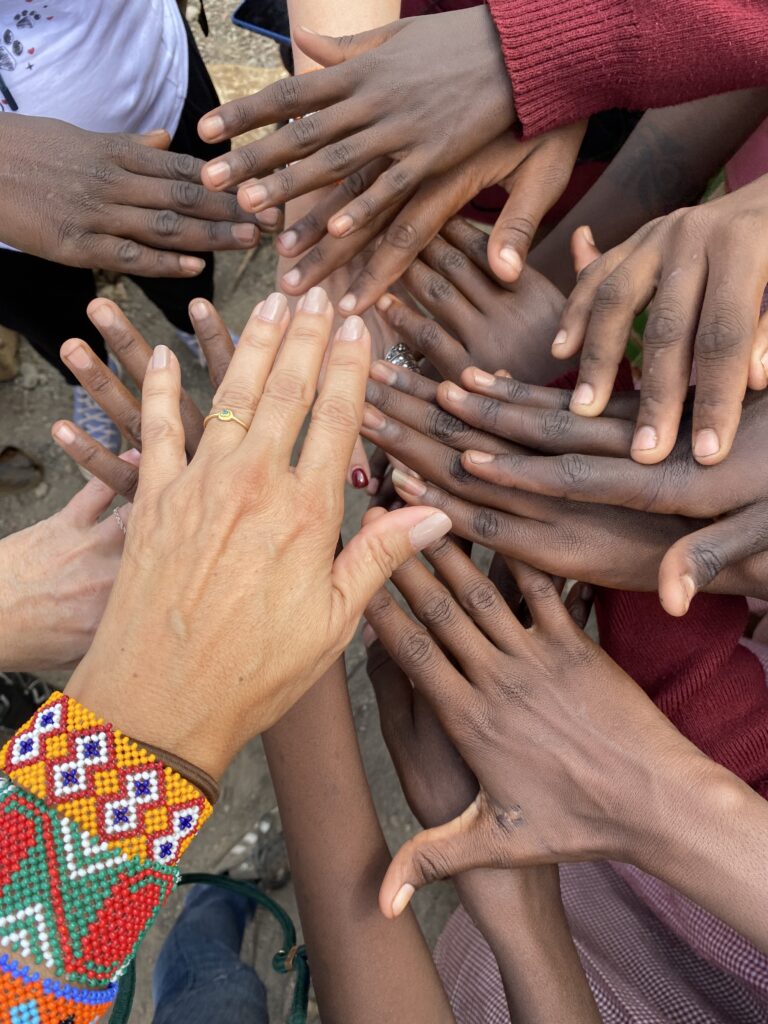
School Iloshon
Iloshon is located in the Rift Valley about 10 km from Mile 46. The elementary school of Iloshon is attended by 423 students. The population of Iloshon is suffering extremely from the drought, however, several international organizations have already taken action there, including drilling a borehole and providing a 100 m3 water tank and washing stations for the school. Nevertheless, also in Iloshon the animals in the savannah do not find enough fodder anymore and straw bales have to be bought in as feed for the animals. The price for the very emaciated cows and goats has also dropped. The weak animals currently fetch price of about 1,000 KES and earlier between 40,000 and 60,000 KES could be fetched with them.
In contrast, the prices of staple foods such as ugali, cabbage, cornmeal, beans, sugar, salt and cooking oil have increased massively due to inflation. Transportation prices have also been affected by inflation.
At the request of the Deputy Head Teacher and the Head Teacher, we are now sponsoring a daily lunch at the school for the last few weeks of the semester, which will help keep the children coming to school regularly. According to the teachers, the children arrive at school completely dehydrated, hungry and tired, and some of them are unable to teach. During the farewell tour of all the classes, in PP1 and PP2 the children were sitting there with the empty bowls in their hands, as they were already waiting for the upcoming lunch. This meal is often the only meal per day that these children currently receive.
The elementary school of Iloshon is attended by 450 students. The introduction of the new curriculum makes changes necessary in Iloshon as well. For example, an Italian NGO is working to build two classrooms for the junior high school and there is a plan to build a needed secondary school. However, there is currently no budget for the construction of a laboratory. Government regulations, however, require the existence of a laboratory in order to officially register the secondary school.
The school has boarding facilities in Iloshon for about 70 girls at the Nasaru Learning Center for Masai Girls that we built. We also offer sewing classes for students and moms there, which are also very well received. Currently 53 girls are enrolled for boarding, of which we support 25.
Our goal is to also set up an infirmary and a hairdresser/barbershop there in order to show and also teach the schoolgirls further career prospects.
In addition, we would also like to show a perspective for the male students and plan to send individual students to the Masai Technical Institute in Kajiado.
There are also some boys boarding in one of the former teachers’ quarters and under very questionable hygienic conditions.
The community of Iloshon is supported and cared for by various non-profit organizations. For example, in the last two years a borehole has been constructed which, among other things, feeds a 100m3 water tank for the school. The permanent presence of water helps a lot. The problem, however, is that the actions of the organizations are not concerted, but selective and seemingly erratic.
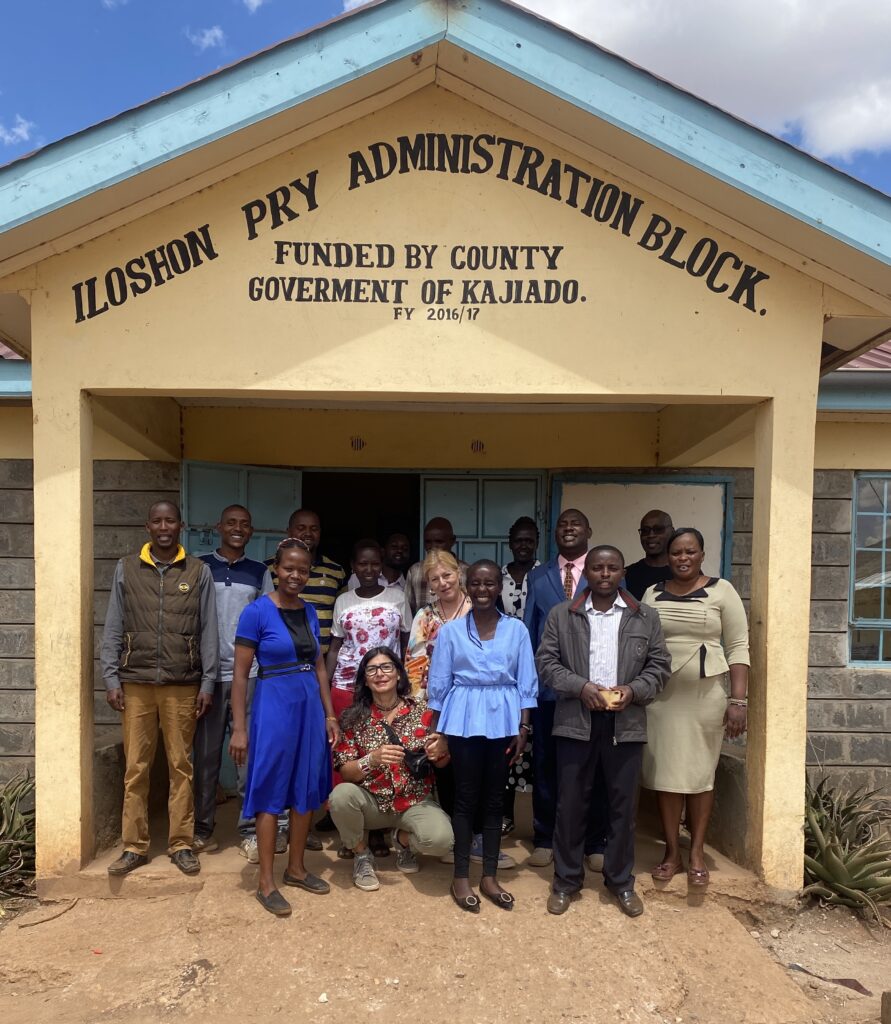
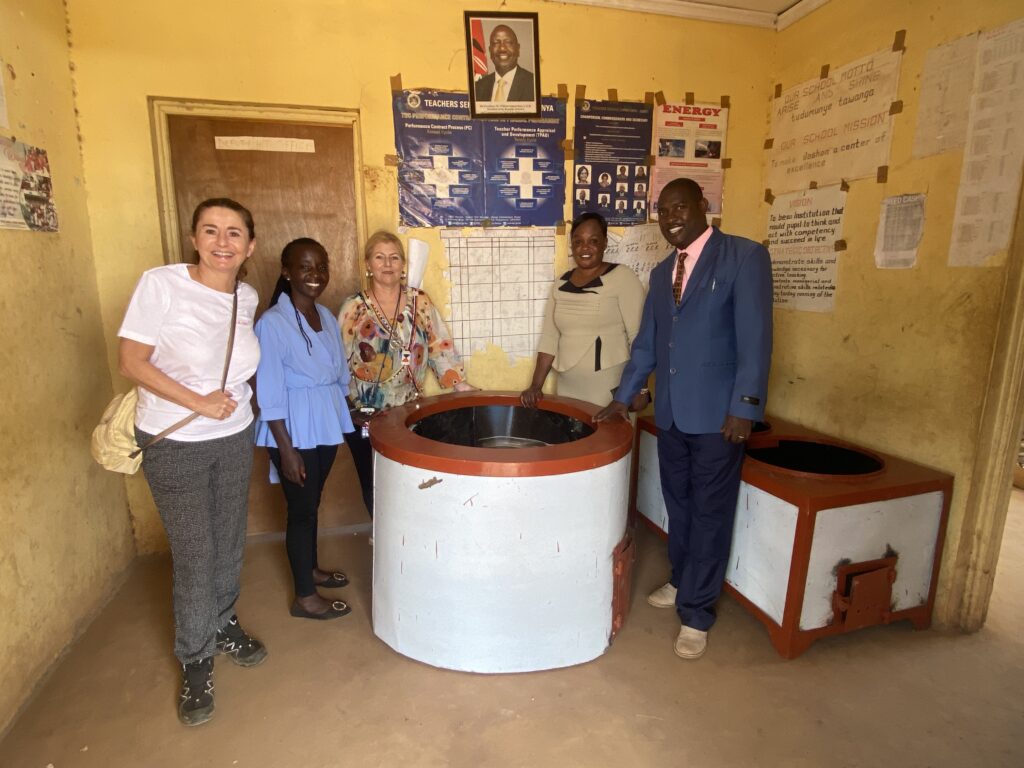
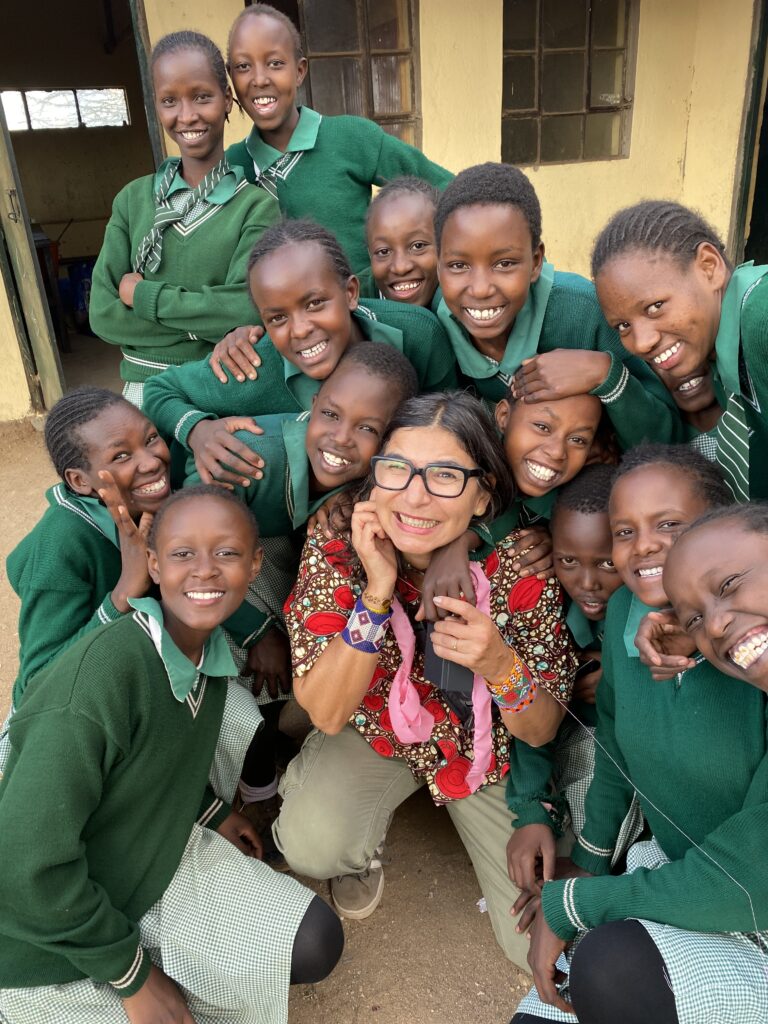
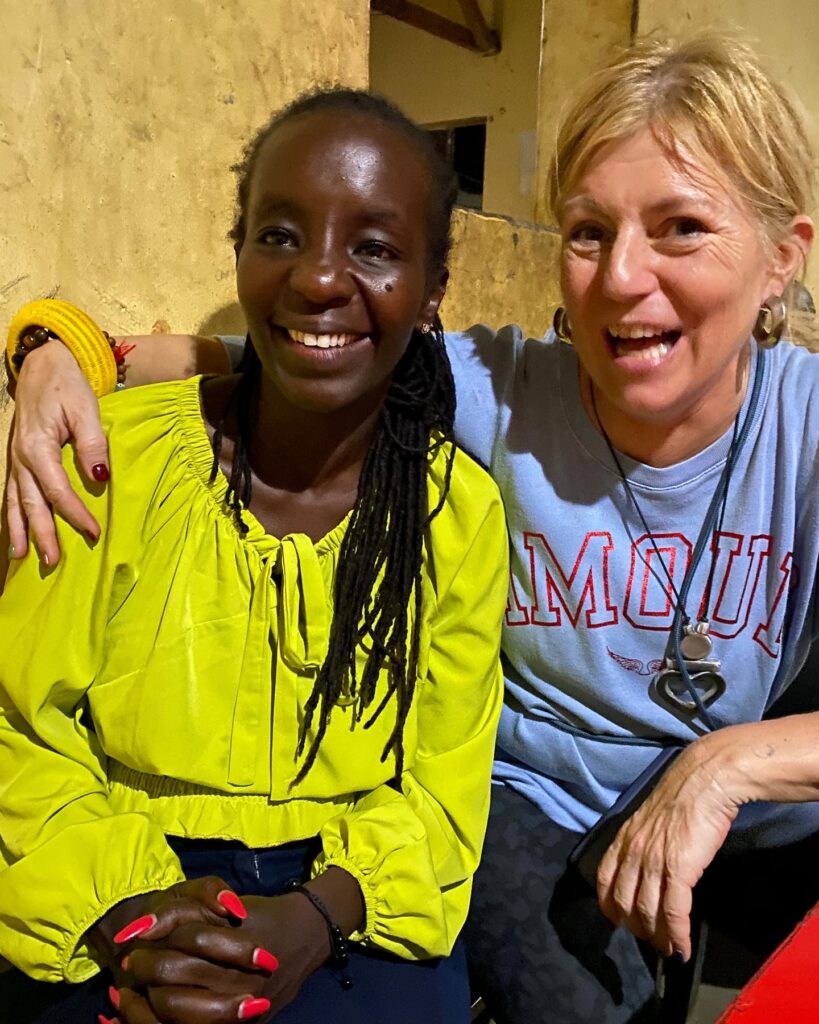
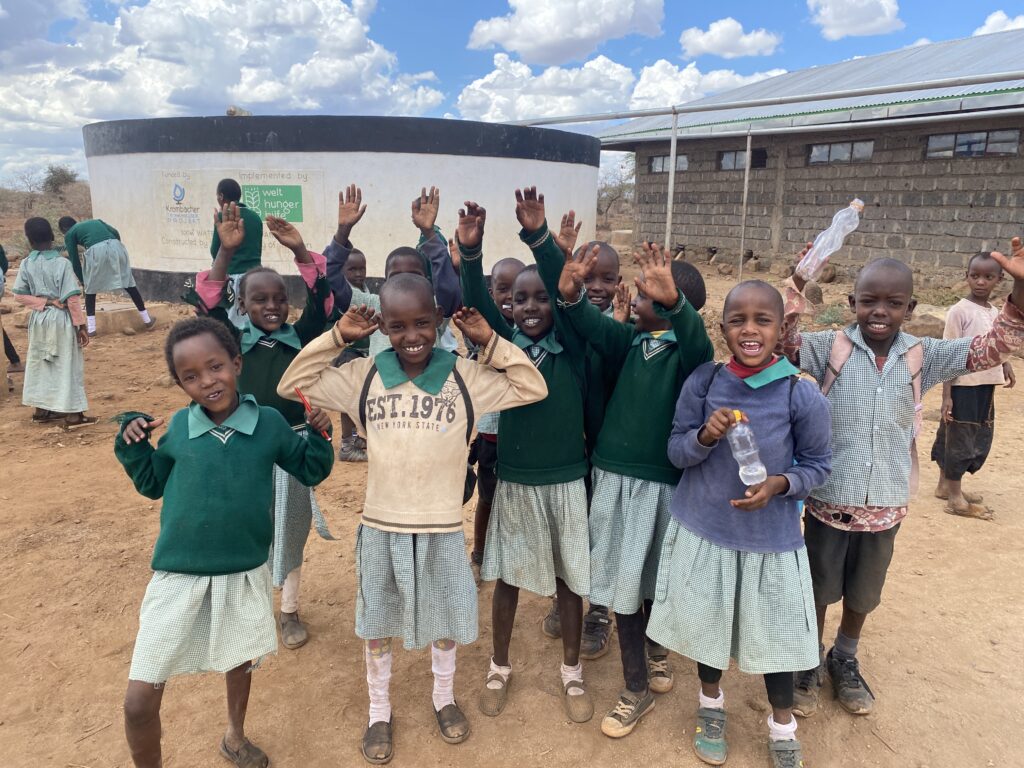
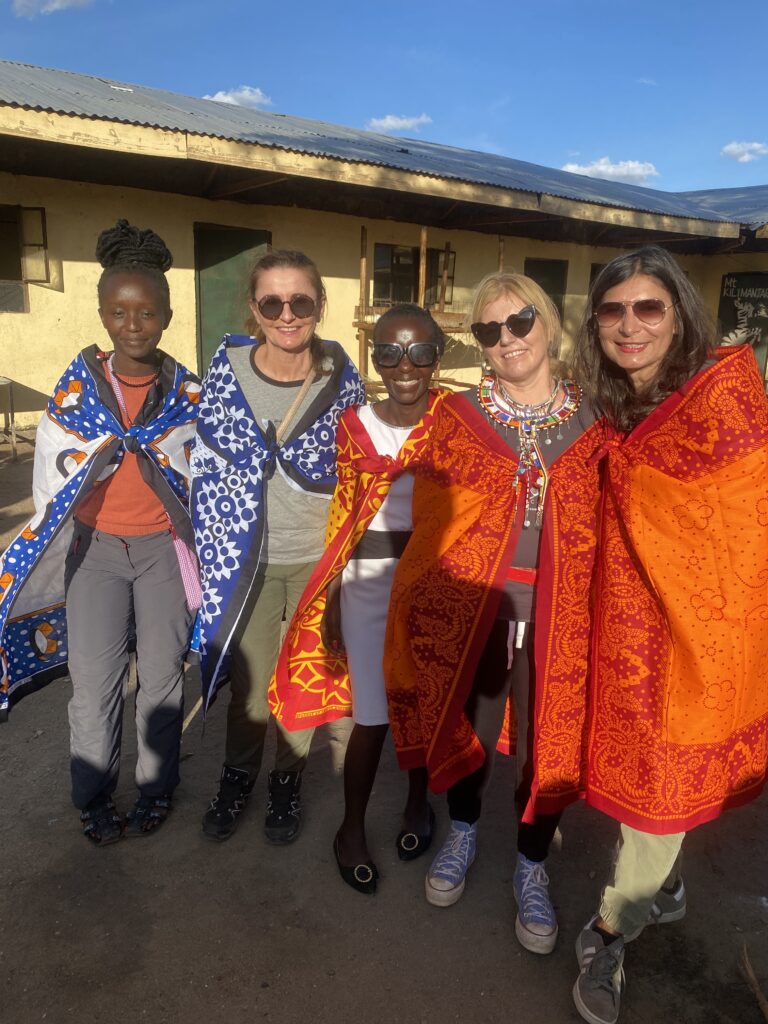
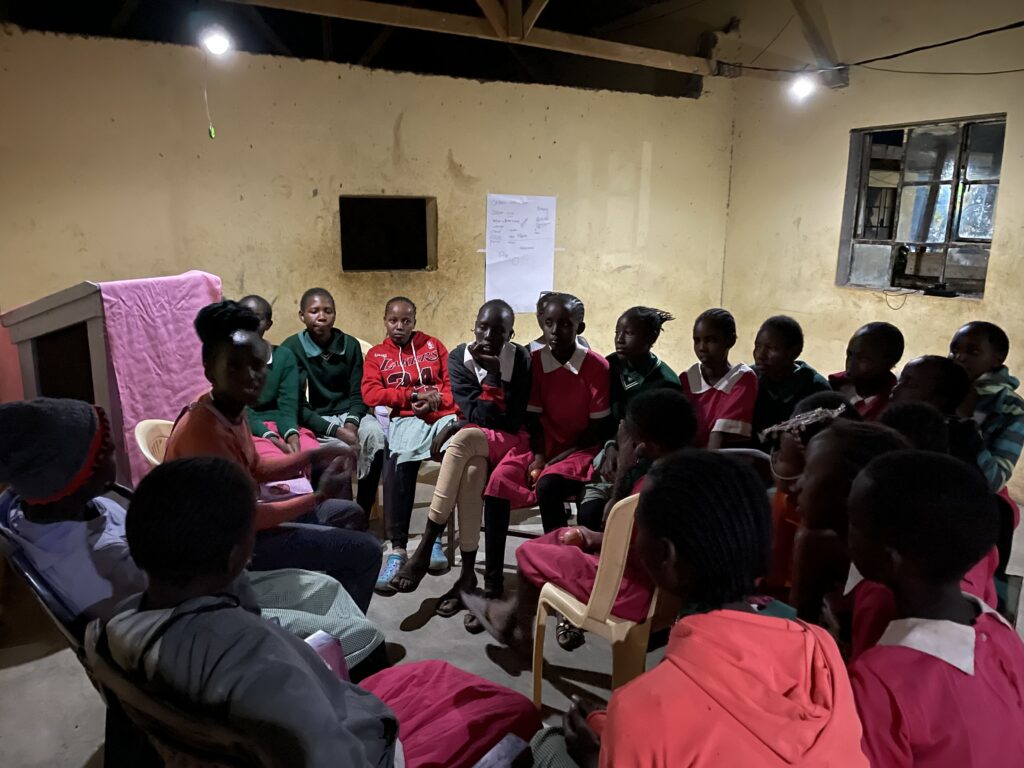
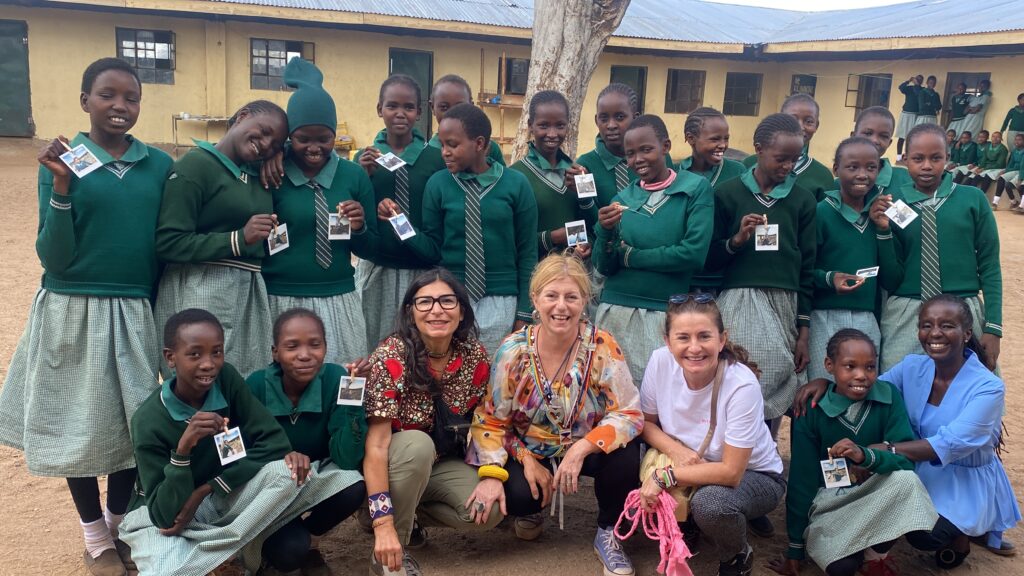
Immpirrishi School
Immpirishi Primary School is located in Tinga, Kiserian. Around the school live about 800 families, i.e. about 5,600 people. There are currently 217 students enrolled at the school, however only 169 come to school semi-regularly.
This area is suffering greatly from the drought that has now lasted for over 2 years. The parents and also the children have to walk further and longer distances with their animals in search of water.
We are currently the only organization that goes there regularly to provide water, food and education about FGM. We have been active there for two years.
The school has no water, and the classrooms are made of corrugated metal that heats up under the sun. They are in terrible condition and snakes are often encountered in the classes and ants build their piles there during the vacations. Termites eat up the school books.
We are currently supporting 12 girls in this school who have been victims of FGM, with the aim of making them ambassadors against FGM and role models for the other girls. Three of the girls will enter secondary school next school year, and we will support them in this. In addition, one of our employees comes by every other month with a food delivery for the parents. On the occasion of our visit we also brought food and gifts for the teachers (beans, rice, oil for cooking, salt, sugar, soap, washing powder), writing books for the children and a water delivery.
This school was in dire need of a well or a large water tank. In addition, the nearest store is a 3 hour walk away – it is located in Tinga. The medical care for the population there is non-existent, FGM is practiced and the hygienic conditions are inhumane. We are also in contact with the cutter/midwife and have brought her disinfectant, disposable gloves and disposable blades for births.
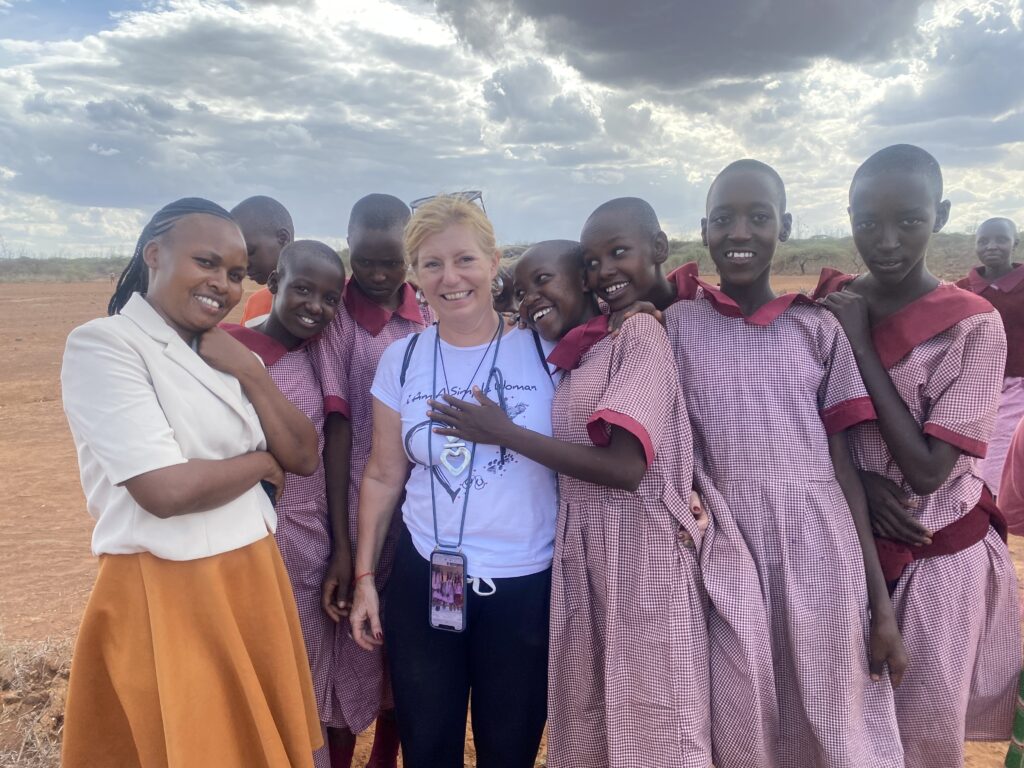
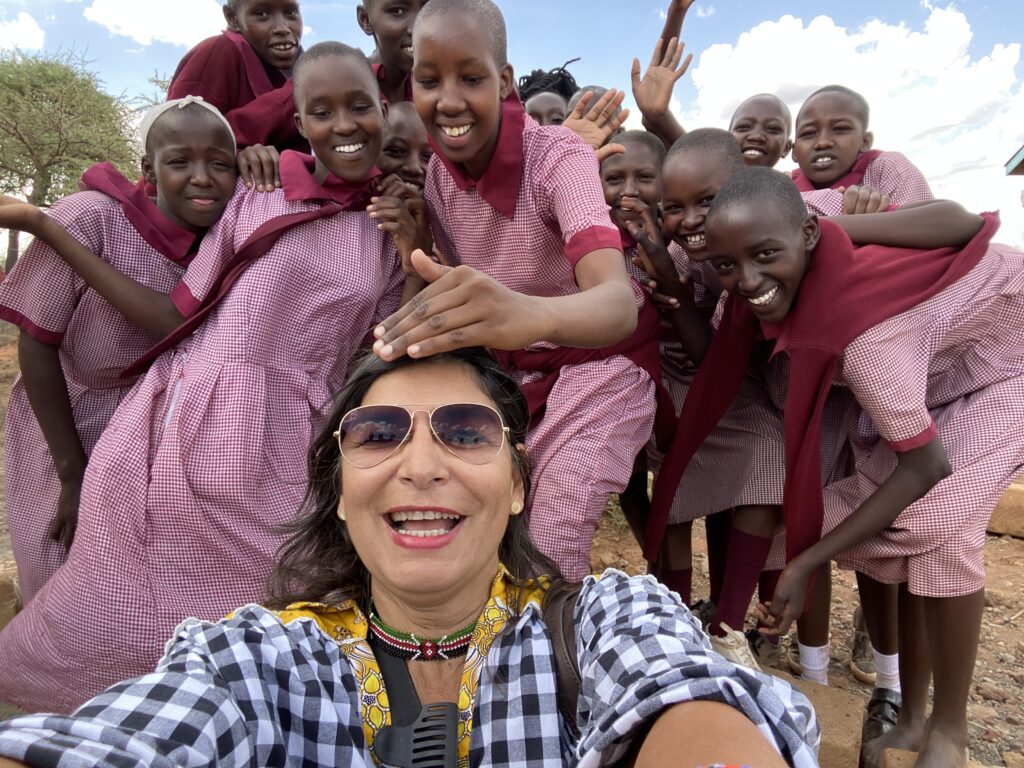
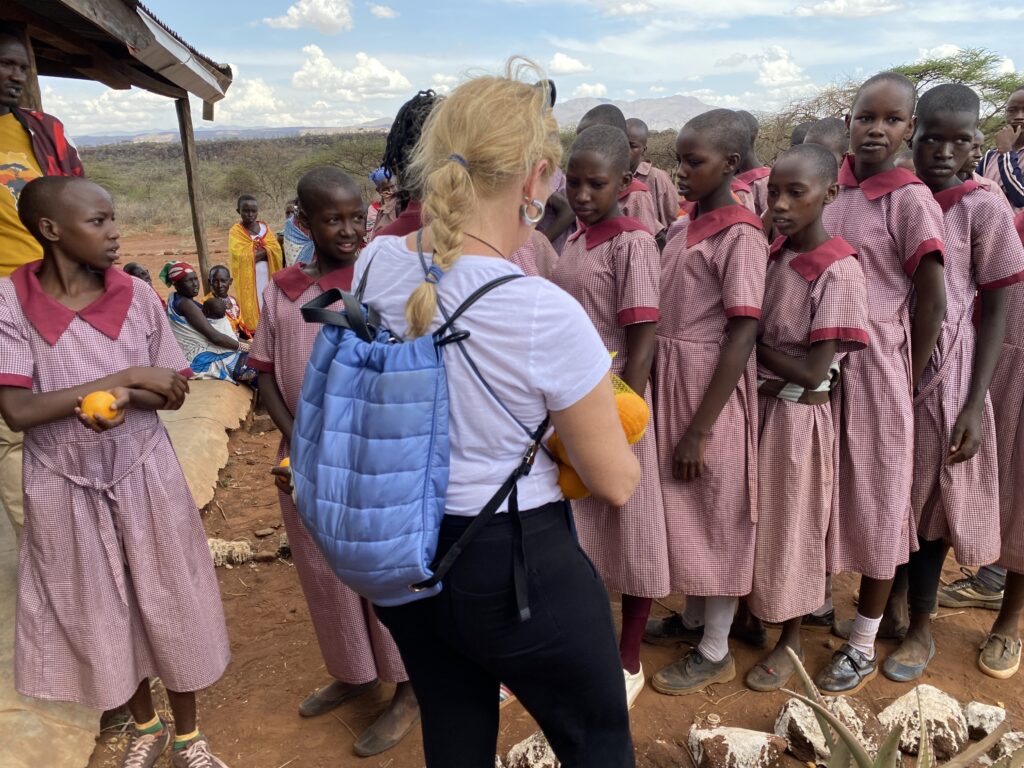
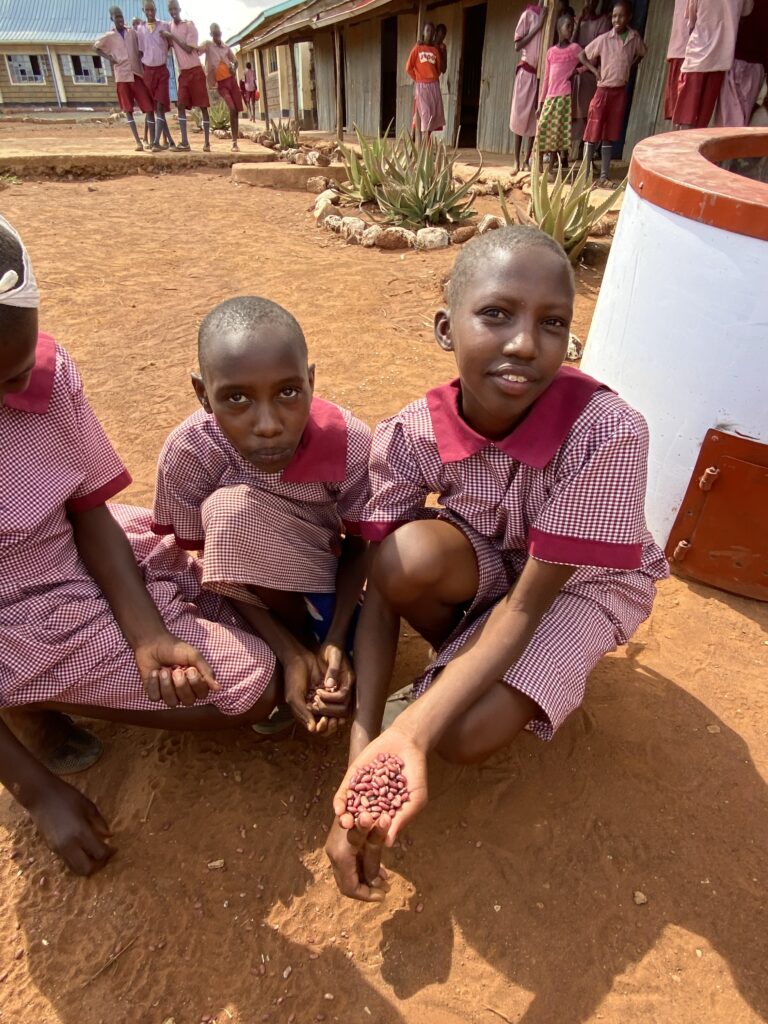
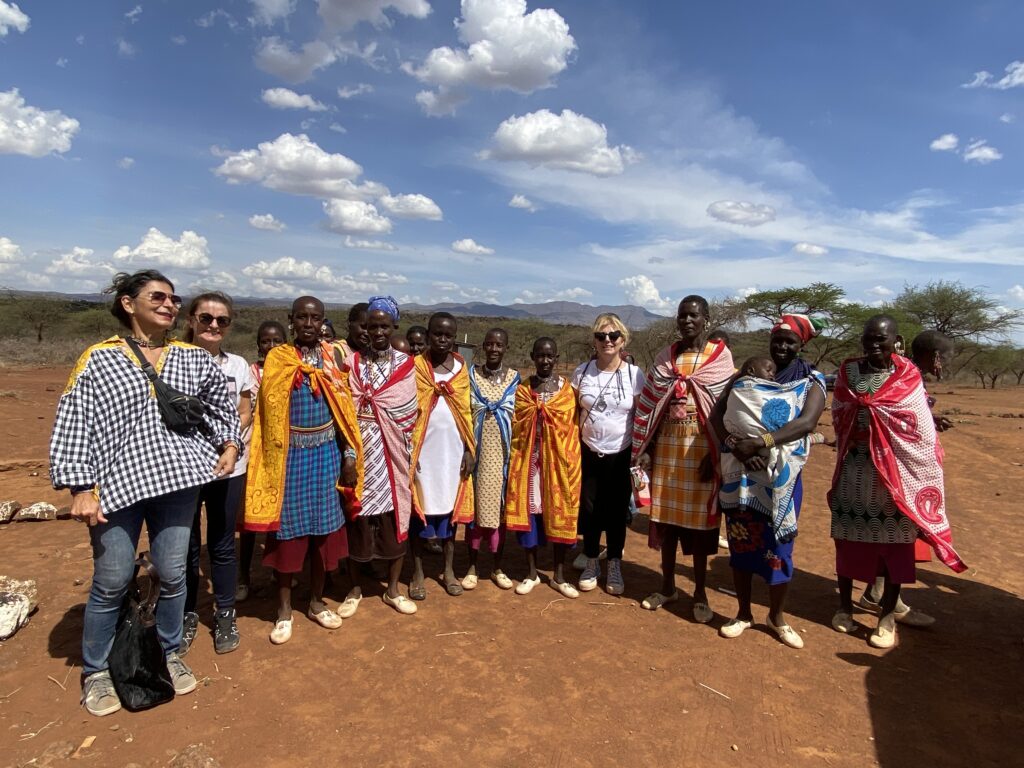
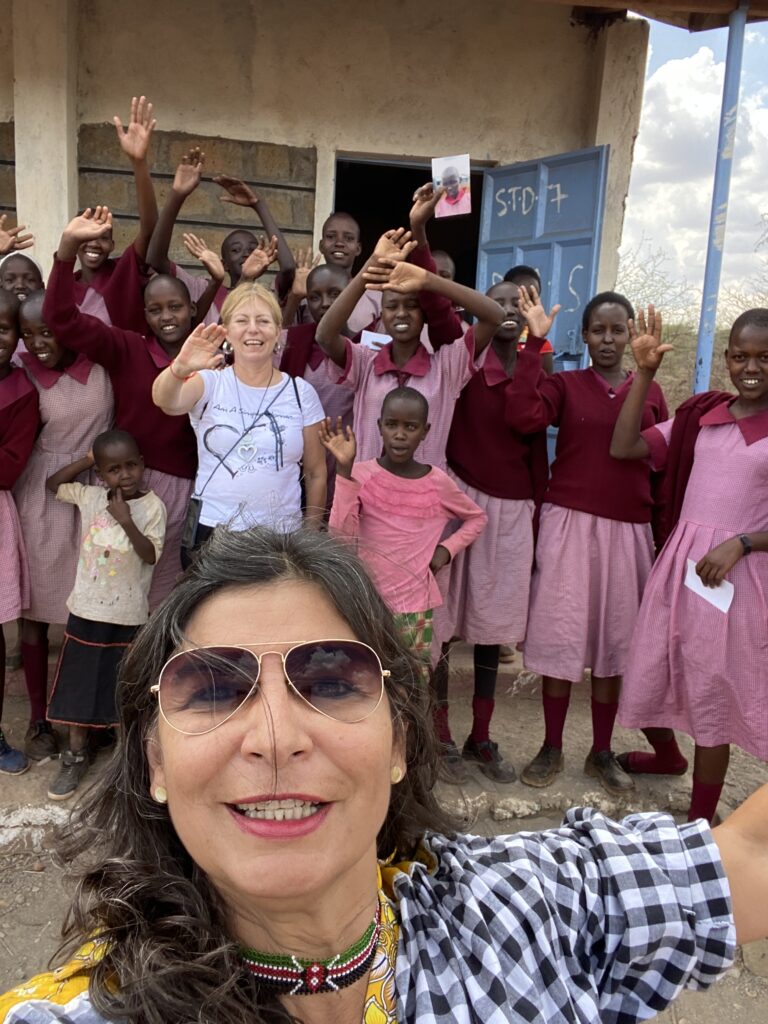
School Kings & Queens of Rehoboth
This school is a private school in the slums of Kitengela (Noonkopir). In contrast to Europe, private schools in Kenya are for particularly poor children whose parents cannot afford the school fees.
This school is located directly behind a large garbage dump, where some of the children’s parents search for recyclable material during the day. This garbage dump stinks beastly and vapors rise, which are certainly not healthy. Next to it, skinny cows are looking for something to eat and the vultures are also waiting for their chance.
There are currently 170 children in this school, including refugees from Congo and children from the surrounding slums. The absentee rate is very high, and there are several reasons for this. One of the reasons is period poverty, meaning that the girls do not own underpants or have access to sanitary pads and therefore have to stay home for the duration of their periods. In addition, the children’s parents often do not even have money to provide regular water and food for their children. Many children come to school very dirty and some of them even wash themselves at school. Not all children wear school uniforms, although this is compulsory in Kenya and in case the school is inspected by the authorities, this would reflect very badly on the school and also be a reason for further inspection.
It is a private school recognized by the state, but it does not receive any support from the state. Recently, a new curriculum was introduced in Kenya, which means that the students need new textbooks. Furthermore, practical subjects such as keeping chickens and knitting are part of the new curriculum. While this is very welcome, the money for the necessary materials (knitting and crocheting needles and wool) is not available here either.
Some of the children are also unable to take their final exams – despite doing well in school – because they do not have birth certificates.
The school has a water tank, but not regularly the financial means to buy water. Regular meals at school also increase parents’ motivation to send their children to school.
Furthermore, the government requires a large room for the final exams, as an external person supervises the exams and the desks have to be placed more than 1 meter apart.
Problems in this school
- Absences
- Period poverty
- Parents who are illiterate
- Lack of birth certificates
- School books and teaching materials are not available
- Availability of school uniforms, underpants, socks and shoes
- Money for food and water at school
- Lack of a regular sponsor/supporter to pay for fixed costs (rent, teachers, school uniforms, breakfast and lunch for the children)
- Domestic violence in many families at home: no wonder given the more than cramped and really terrible housing conditions.
There are a lot of problems in the schools located in the remote savannah, but they are present to the same extent in the slum of Kitengela, where in addition the extremely cramped living conditions lead to even greater tensions in the families than in the savannah, where people actually spend a large part of the time outdoors.
The school in Kitengela is financed exclusively by donations. Before Corona, there were many volunteers who would sponsor a child. Due to Corona, many of these sponsors have dropped out and the school’s existence is massively threatened. We will therefore take over the fixed costs for the maintenance of the school in Kitengela from 2023.
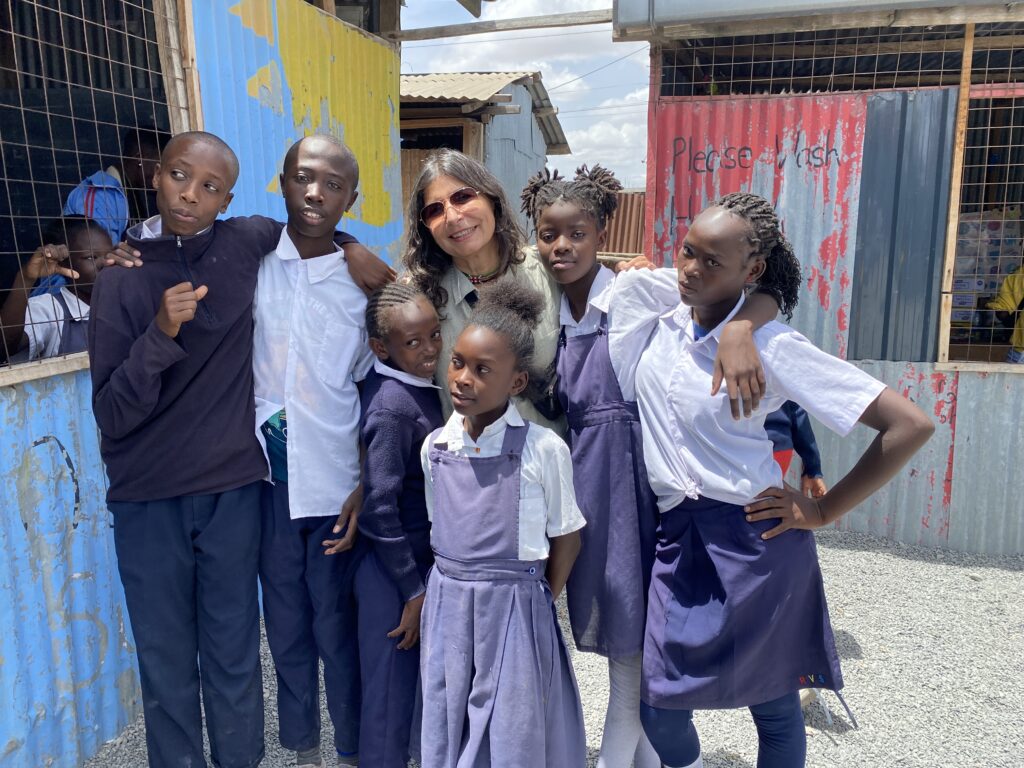
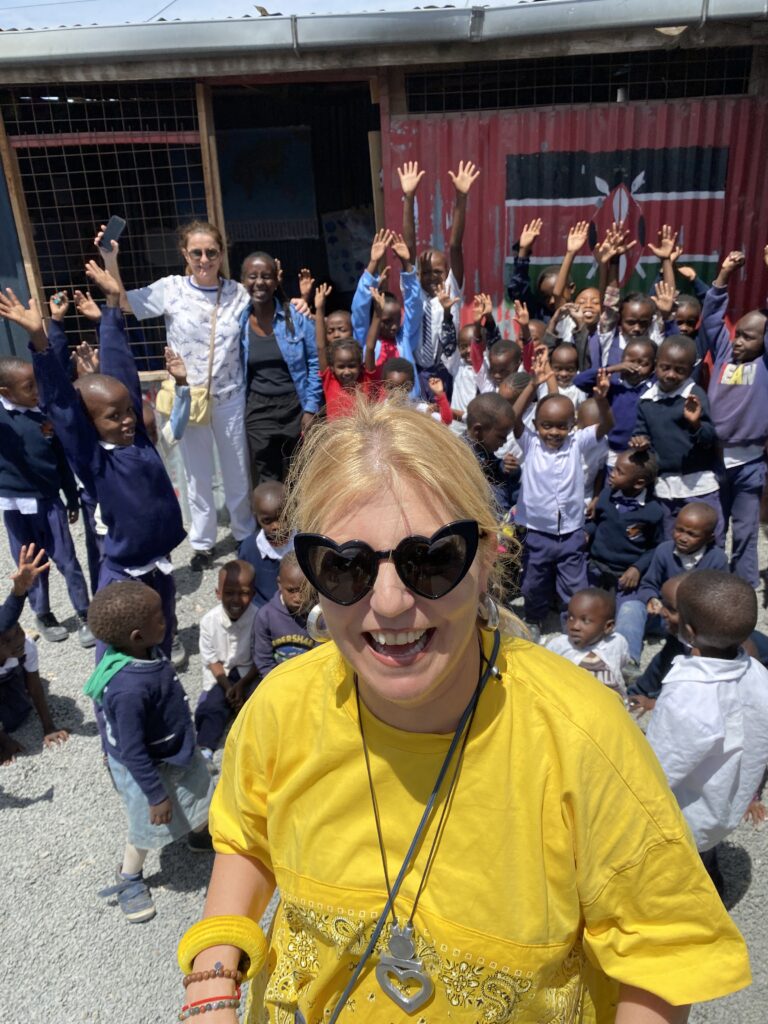
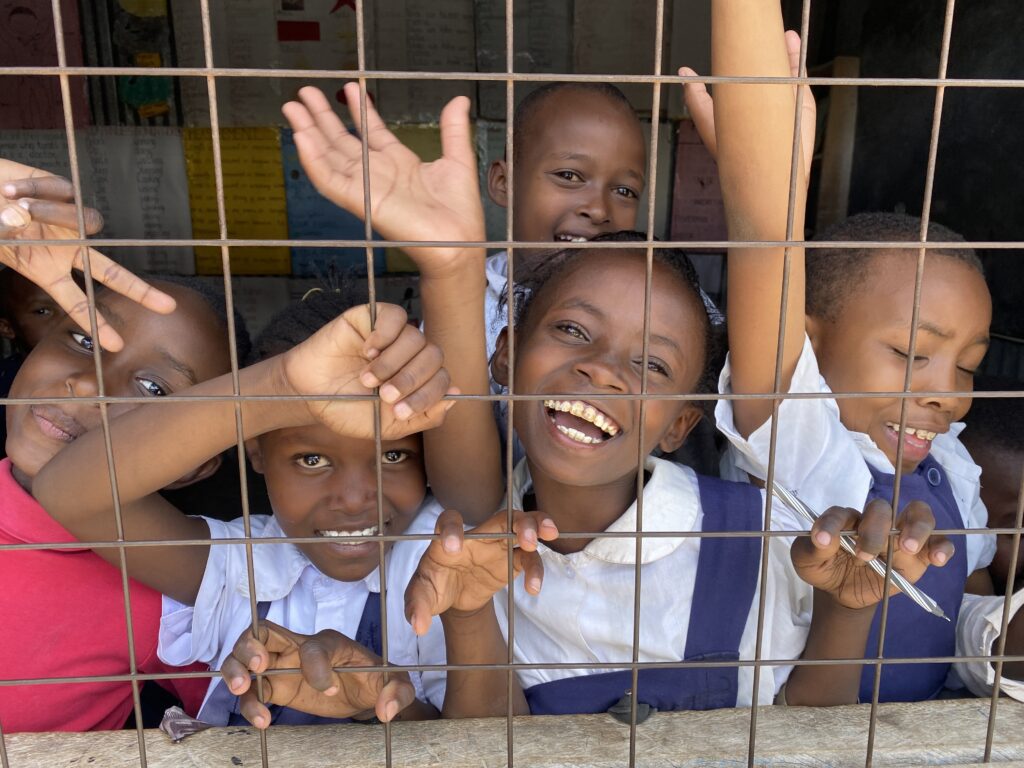
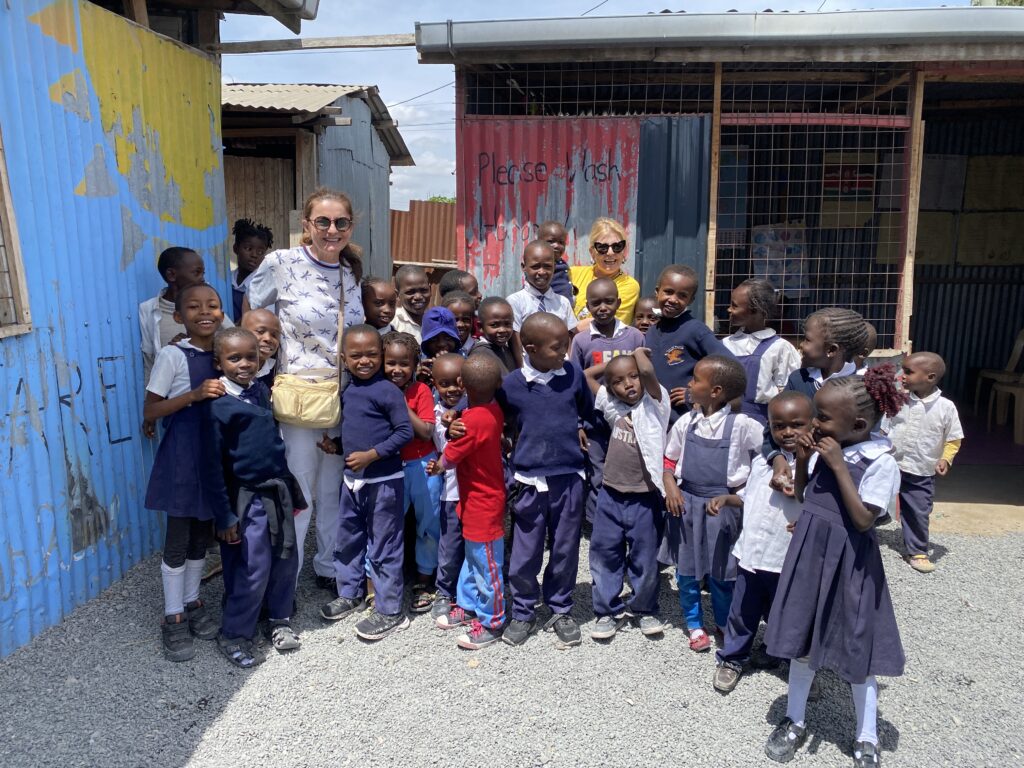
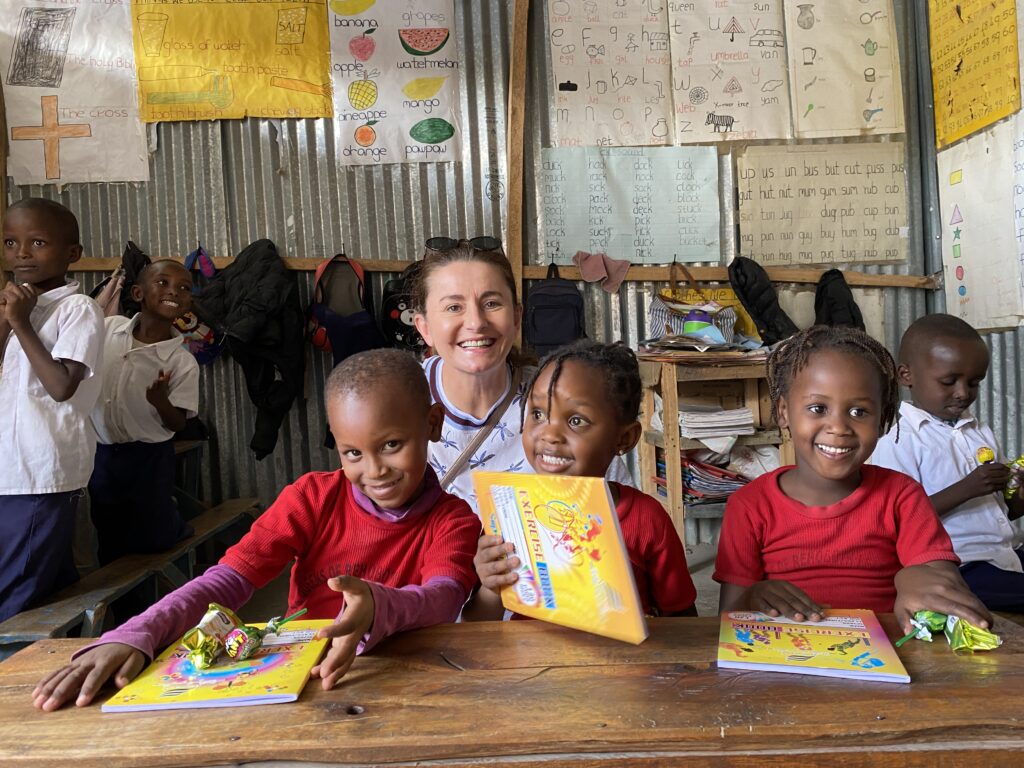
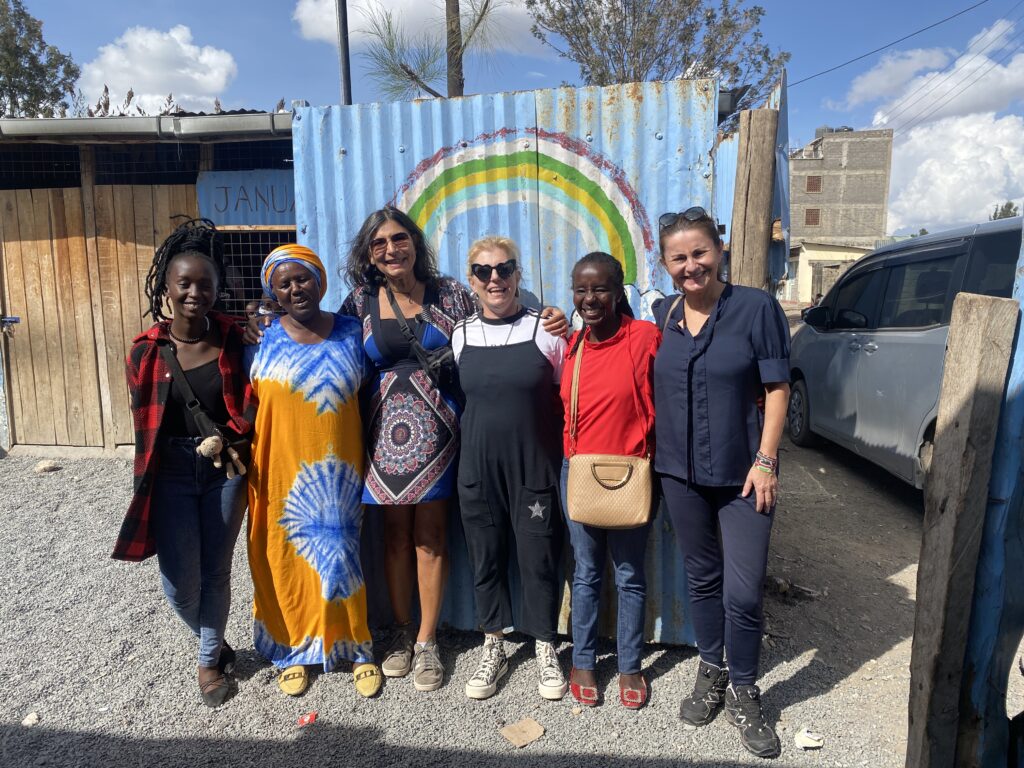
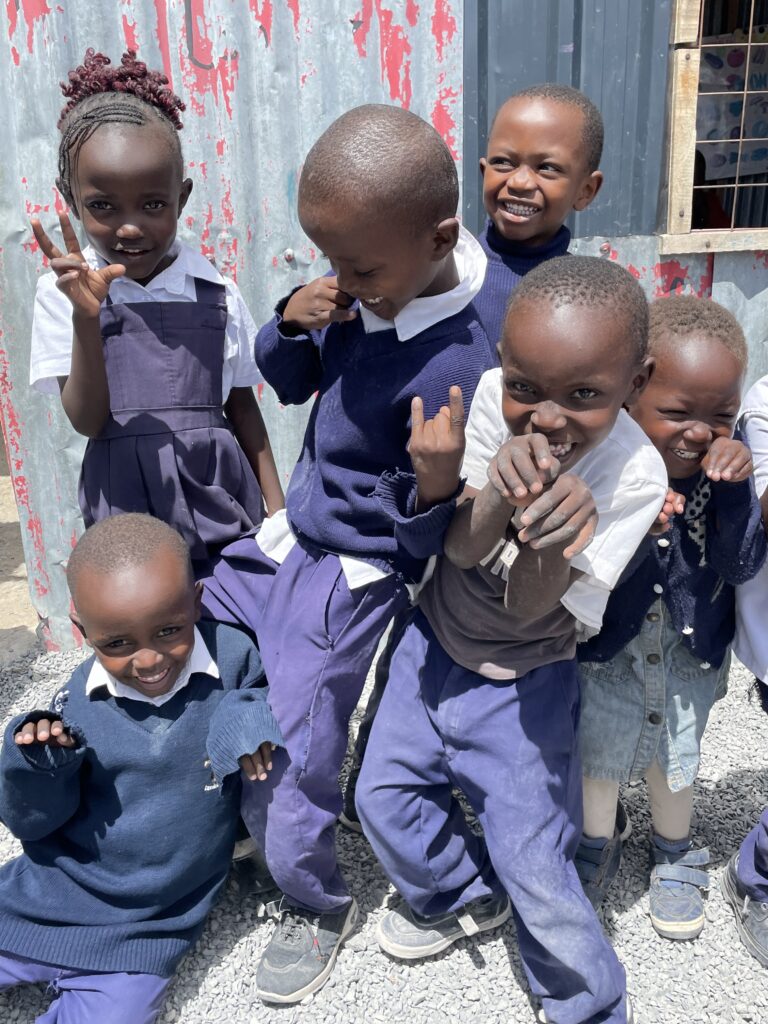
After all these great and touching encounters, we are aware that we have a Herculean task ahead of us. But, we also know that we get an incredible amount of love and above all: We will be back!

